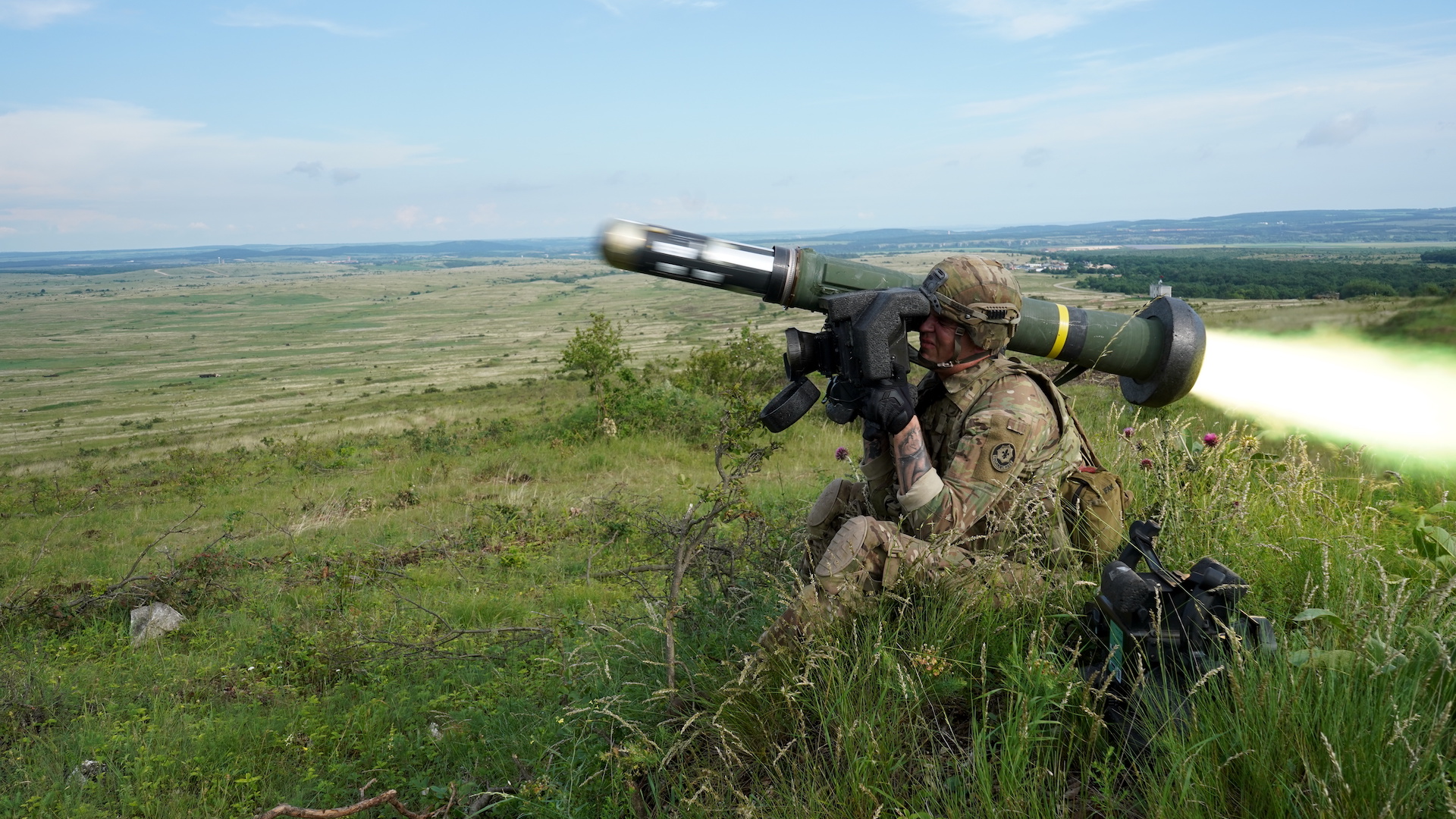

The U.S. Army is betting that demand for the FGM-148 Javelin missile, elevated to iconic must-have tank-killer by the Russian invasion of Ukraine, won’t die down anytime soon: The service is moving to replenish its stockpiles ahead of the next big war with a monster contract.
On Wednesday, the service awarded an indefinite-delivery, indefinite-quantity contract valued at up to $7.2 billion over three years to Javelin Joint Venture, comprised of defense giants Lockheed Martin and Raytheon, to secure production of the beloved anti-tank missiles for the Army, Marines, Navy, and “international customers.”
The initial base order for the contract is $1.2 billion for an unspecified number of Javelin missiles, according to the Army. The cost of the missile itself has fluctuated over the last few years from $160,000 to $177,000, according to service budget documents for fiscal year 2024.
“The Army, along with industry partners, are striving to shorten the production lead time associated with production and delivery of these systems,” said Assistant Secretary of the Army for Acquisition, Logistics, and Technology Doug Bush in a statement. “This contract award further illustrates the urgency the U.S. government is applying to the acquisition of systems and replenishing munitions stockpiles.”
Subscribe to Task & Purpose Today. Get the latest military news, entertainment, and gear in your inbox daily.
Long coveted as a military equalizer between asymmetric foes, the Lockheed-Raytheon joint venture has produced more than 50,000 Javelin missiles and 12,000 reusable command launch units to date, which is pushing to increase production from 2,100 to 3,960 missiles annually by late 2026, according to Breaking Defense.
That uptick in production comes a year into the Russian invasion of Ukraine, which has seen the Javelin play an integral role in knocking out Russian armor. The missile itself has become a symbol of Ukraine’s military resistance, a powerful tool used to level the playing field between nimble Ukrainian soldiers and an onslaught of Russian tanks.
The U.S. funneled more than 8,500 Javelins, as well as 54,000 other anti-armor systems, to the Ukrainian military as of the beginning of March, according to a report from the Congressional Research Service. Those Javelins represent roughly a third of the U.S. military’s inventory, according to the Center for Strategic and International Studies.
The purpose of the new contract is to create a mechanism through which the U.S. can buy as many Javelins as it can “without getting locked into a specific contract they have to keep modifying,” according to Mark Cancian, a senior advisor for the international security program at CSIS.
“The current production line capacity looks to be about 2,100 a year, for everyone, with a two-year lead time,” Cancian told Task & Purpose. “It signals that the demand for Javelins will be high for many years. Part of that might well be directly related to the war in Ukraine, but also a lot of people want Javelins now after seeing them put into action there.”
Indeed, as recently as this past March the U.S. State Department approved the sale of $125 million in Javelins to the United Kingdom to replenish its stockpiles amid ongoing security assistance to Ukraine. Taiwan, long in China’s crosshairs and under U.S. protection, is set to receive a batch of 200 missiles from the latter this year.
While the monster contract appears to signal a major investment in the proliferation of Javelins within the U.S. armed forces and among its allies, Cancian notes that the open-ended contract “is not the end of the Javelin story.”
“I think this is an indication of Javelin’s popularity and recognition that the demand may go up in the future whether for wartime requirements or for allies and partners,” he said. “I’d expect that there will be another multi-year contract.”
The latest on Task & Purpose
- USS George HW Bush aircraft carrier rocks battle flag on return home from deployment
- Accused Air Force intel leaker Jack Teixeira’s bedroom is the most cringe thing we’ve ever seen
- The Navy wants to sell off its troubled littoral combat ships to allies after just a few years in service
- The beloved A-10 Warthog has a brand new role: bomb truck
- Army National Guard team wins this year’s International Sniper Competition